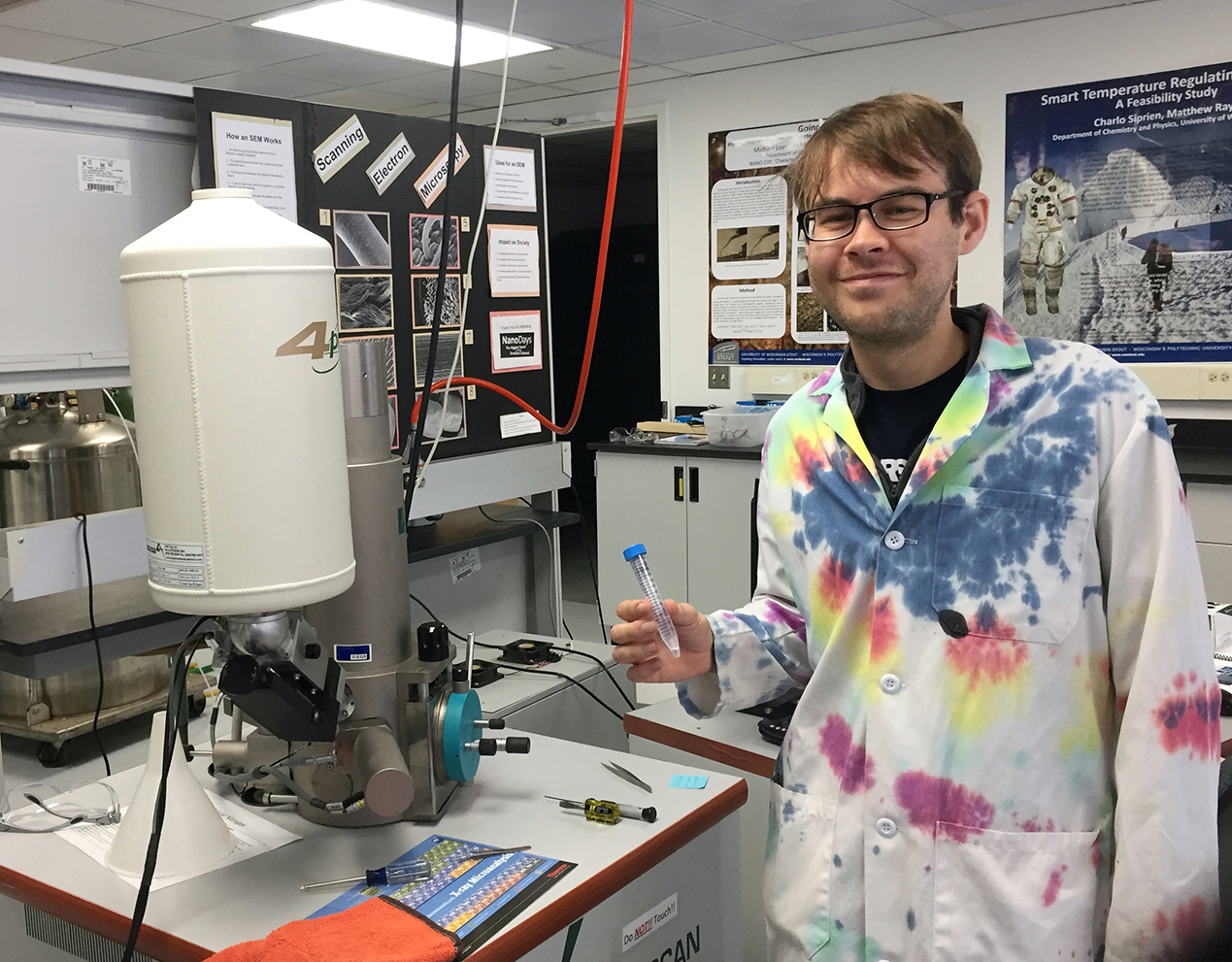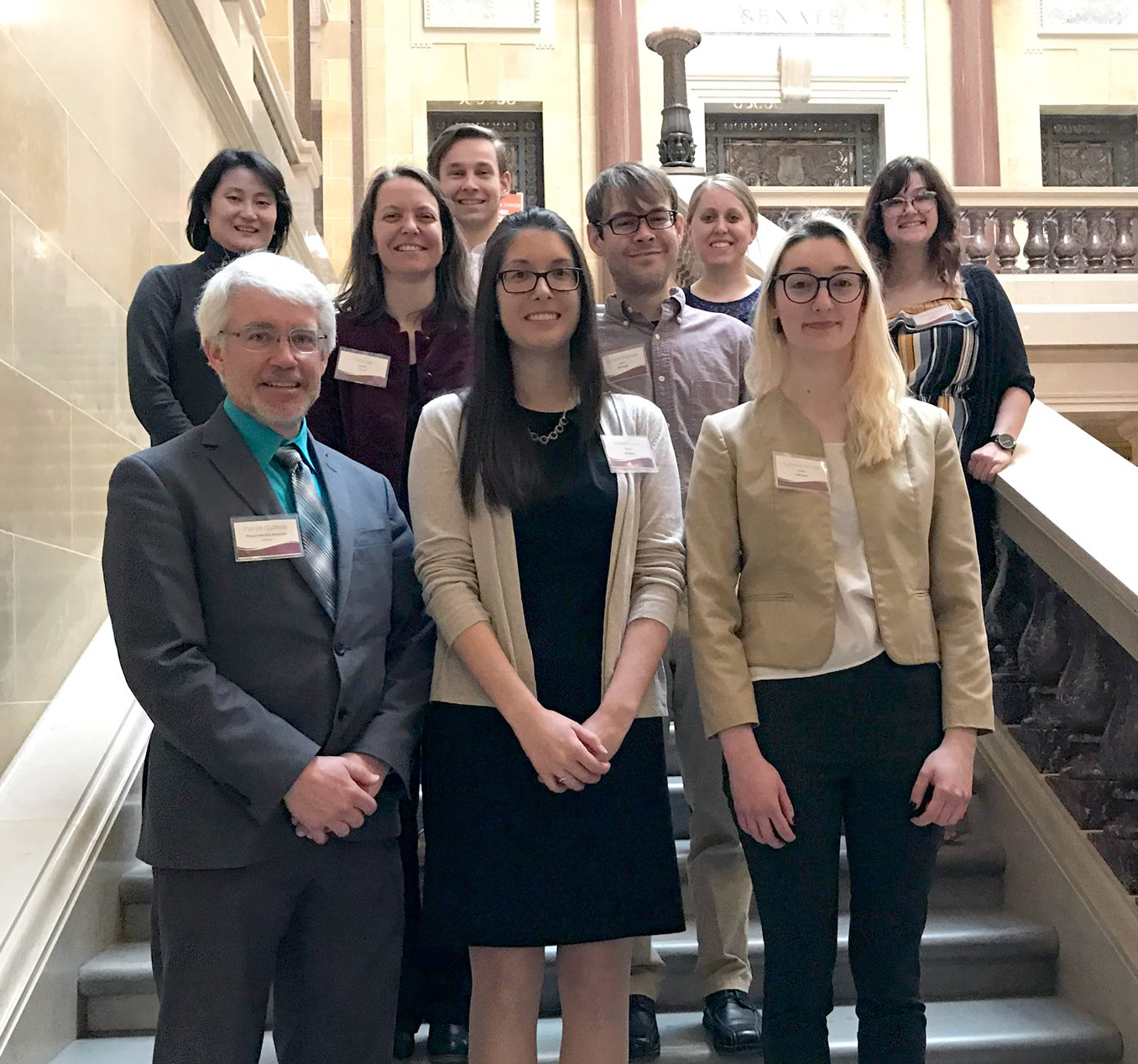Multiple trips to the doctor spurred one University of Wisconsin-Stout graduate’s interest in science.
Richard “D.J.” Shipman, 25, of Spooner, graduated Saturday, May 5, with a degree in applied science, focusing on biochemistry and molecular biology.
He had a kidney transplant when he was 10 years old. The donor was his father, Richard Shipman Jr. “I was fascinated with medicine,” D.J. said.
When D.J. was six weeks old, doctors discovered he had a medical condition that damaged his kidneys, requiring one kidney to be removed. At age 10 doctors at the University of Minnesota determined Shipman needed a transplant.
Shipman Jr., a UW-Stout alumnus, donated a kidney to his son without hesitation. “It was my turn to step up,” the elder Shipman said. “He had a pretty tough time.”
Shipman Jr. is a 1987 industrial technology graduate. D.J. Shipman’s mom, Debra, is also an alumna, graduating in 1987 in business administration. The couple met while students at UW-Stout. At commencement May 5, they reminisced about their college days while cheering on D.J.
“We’re very, very proud of him,” Shipman Jr. said of his son. “He overcame a lot of adversity. We do expect to see him do some pretty amazing things.”
When he was a teenager, D.J. went through a rejection episode with the transplanted kidney, but doctors were able to reverse it. Because of that, he missed quite a bit of school and ended up attending a Washburn County alternative school to finish high school.
Focused on research
Shipman developed an interest in research, and at UW-Stout he worked with Eun Joo Lee, associate professor of food and nutrition, and Jennifer Grant, associate professor of biology, to determine the impact of a chicken egg protein on tooth decay. They have used an enamel that mimics a tooth and studied the effect of acid on the enamel, with and without the protein.

The study looks at whether the protein helps protect the enamel from acid. The research is entitled “Development of an Immersion Model for Tooth Decay Observed Via Scanning Electron Microscopy, Atomic Force Microscopy and Flame Atomic Absorption Spectroscopy.”
“It’s potentially a preventative agent for tooth decay,” D.J. said, noting data is still being determined on the effect.
D.J. presented a poster on the research at Research in the Rotunda, at the Capitol in Madison, and the American Society for Biochemistry and Molecular Biology annual meeting. He is president of the UW-Stout chapter of the ASBMB.
Grant, D.J.’s adviser, said he is an exceptional student and a natural leader. “He’s excelled at problem-solving in the lab and rose to team leader a long time ago,” Grant said. “He’s managed a team of four to five students and has spent quality time mentoring several of them individually. I’ve watched him provide expert advice on science, persona success, outreach and careers in general to his peers.
She said D.J. excelled in her proteomics class. “The class is a lab-intensive course. He’s detail-oriented and committed to understanding what his experiment is telling him. And his persistence is admirable.”
He was named STEMM College honorable mention Outstanding Researcher, “which speaks to how deep his work on tooth decay is,” Grant said.
“I haven’t seen a student who really enjoys working with instrumentation so much, interrogating our experimental system with every analytical device we have available to study tooth surfaces. Once we figured out which techniques would benefit our projects the most, D.J. reached out to several faculty, instructors and resource managers to make the experiments happen. We’re expecting to publish the work within the next six months.”
Grant said D.J. will be an exceptional addition to any team.
“D.J. has exceptional skills in particular areas of research, including bioinformatics, that will make it easy for him to access the best labs with international reputations,” Grant said. “He’s already started reaching out to the best researchers worldwide. I’m confident he will at some point complete a Ph.D., which would allow him greater flexibility to pursue his own creative ideas and projects. He may very well start his own company too. He’d do well in industry too, and he’s motivated, so I have little doubt he’ll be able to pursue research of great innate interest to him.”

D.J. loves the collaborative process of science.
“You need people to scrutinize your work and to criticize you, so you know how to fix your work,” he said. “Science is a collaborative enterprise. It helps expand ideas, and I get many new ideas. I love exchanging ideas and seeing options out there available in the world.”
After graduation, D.J. plans to take a break from school, visit Europe and then go to graduate school, although he has not decided where.
Eventually he wants to lead a research group working in quantum biology. Subjects he wants to research include the microbiome of clouds and the idea of theoretical organisms.
###
Photos
Richard “D.J.” Shipman showing some of the research he has worked on with faculty at UW-Stout
Shipman at Research in the Rotunda at Madison. Shipman is in the second row on the right.




